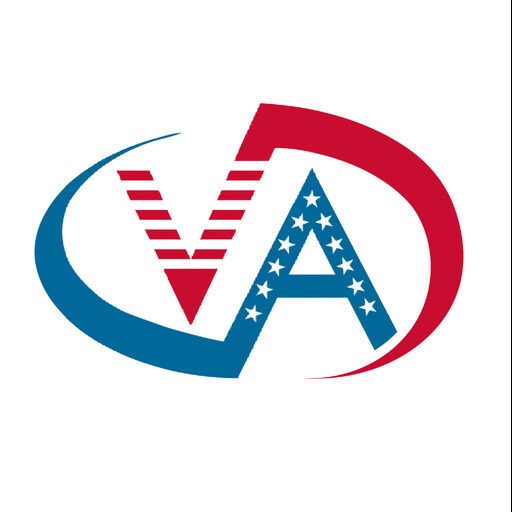Navigating the home-buying process involves understanding the various costs associated with purchasing a home. Among these costs are non-allowable fees, which are expenses that certain mortgage programs, such as VA loans, prohibit borrowers from paying.
Knowing how these fees work and who covers them is crucial for buyers, sellers, and real estate professionals alike.
This article explores non-allowable fees in detail, providing insights into their impact on your real estate transaction.
VA 1% Flat Charge Cap, quick calculator
Estimate the maximum lender flat charge on most VA loans. For the full Fee Finder database (allowed vs prohibited fees, 2024–2026 updates, and downloads), open the complete page.
What Are Non-Allowable Fees?
VA non-allowable fees are closing costs that the Department of Veterans Affairs prohibits lenders from charging to Veteran borrowers. These fees are designed to protect Veterans from unnecessary financial burdens during the home-buying process.
Examples of non-allowable fees include:
- Document preparation fees
- Broker and processing fees
- Escrow or notary fees
- Loan closing fees
- Inspection fees by HUD or FHA
- Appraisals ordered by parties other than the lender or Veteran
- Real estate attorney or broker fees
- Agent or REALTOR® commissions
The VA will not back a loan if these fees are charged to the Veteran borrower. Lenders must cover these expenses as part of their flat 1% origination fee. For clarity on specific fees, consult with your loan officer or mortgage expert.
| Allowable Fees | Non-Allowable Fees |
|---|---|
| VA Funding Fee | Application Fees |
| VA Appraisal | Attorney Fees |
| Second Appraisal (if requested by Veteran) | Rate Lock Fees |
| Credit Report Fees | Appraisals for Reconsideration of Value (requested by lender or seller) |
| Origination Fee | Appraisals Requested by Third Parties (not Veteran or lender) |
| Title Examination/Insurance | Escrow Fees |
| Recording Fees/Taxes | Prepayment Penalty Costs |
| Discount Points | |
| Hazard Insurance | |
| Flood Zone Determination Fee | |
| Surveys |
Explanation of the Categories
- Allowable Fees: These are costs that the VA permits to be charged to the borrower. They include fees related to the loan process, insurance, and necessary appraisals.
- Non-Allowable Fees: These are prohibited charges that lenders cannot pass to the borrower. Such costs must be covered by the lender or seller, ensuring Veterans are not overburdened with unnecessary expenses.
The 1 Percent Rule:
The "1 percent rule" is a safeguard set by the VA to limit the maximum amount lenders can charge Veterans for certain non-allowable fees. This flat 1 percent fee is intended to cover the lender’s expenses related to originating, processing, and underwriting the loan. Importantly, if the lender charges the 1 percent fee, they are prohibited from adding additional charges for overhead expenses.
The primary goal of this rule is to ensure VA loans remain affordable by preventing excessive or duplicate fees. This guideline provides Veterans with clarity on costs and ensures lenders operate transparently during the loan process.
Costs Covered by the 1 Percent Fee
If the lender charges the 1 percent flat fee, Veterans are not responsible for paying for items such as:
- Loan application or processing fees
- Broker or trustee fees
- Interest rate lock-in fees
- Document preparation fees
- Lender appraisals
- Lender inspections (except for VA construction loans)
- Postage costs
- Photographs
- Escrow or notary fees
- Tax service fees
- Loan closing or settlement fees
Example of the 1 Percent Rule in Action
For a VA loan of $200,000, the lender can charge a maximum of $2,000 (1% of $200,000) as the flat fee. Any additional costs that fall under non-allowable fees must be absorbed by the lender or the seller—not the Veteran.
Summary of the 1 Percent Rule
| Aspect | Details |
|---|---|
| Purpose | Limits fees lenders can charge to protect Veterans from excessive costs. |
| Maximum Fee | 1% of the loan amount. |
| Covers | Loan processing, underwriting, and originating expenses. |
| Prohibited Additional Fees | - Loan application or processing fees - Broker or trustee fees - Lender appraisals - Escrow or notary fees - Document preparation fees |
| Example | For a $200,000 loan, the maximum 1% fee is $2,000. |
| Exemptions | Fees exceeding 1% must be absorbed by the lender or seller. |
This rule ensures Veterans are not burdened with unnecessary fees, keeping the VA loan process equitable and affordable. Always review your closing costs with your loan officer to confirm compliance with the 1 percent rule.
Why Do Non-Allowable Fees Exist?
Non-allowable fees are designed to ensure fairness and affordability for borrowers, especially those using government-backed loans.
According to financial analyst Sarah Chambers from Mortgage Insight Group, "The idea is to reduce the financial burden on borrowers who may already face significant costs during a home purchase." These rules prevent lenders from adding unnecessary charges, maintaining the integrity of loan programs like VA and FHA loans.
How Are Non-Allowable Fees Handled?
If a borrower is prohibited from paying specific fees, these costs must be absorbed by someone else in the transaction—typically the seller or lender.
Seller’s Contribution
- Sellers may agree to cover non-allowable fees as part of the negotiation process.
- VA loans allow sellers to contribute up to 4% of the loan amount toward closing costs, which can cover non-allowable fees.
Lender Credits
- Lenders may offer credits to cover these costs, often in exchange for slightly higher interest rates.
Common Non-Allowable Fees in VA Loans
Here’s a breakdown of some of the most common non-allowable fees and their significance:
| Fee Type | Description | Who Covers It? |
|---|---|---|
| Attorney Fees | Costs for legal representation | Seller or lender |
| Tax Service Fees | Verifying property tax payments | Lender |
| Processing Fees | Costs for loan processing and document preparation | Lender |
| Broker Fees | Charges from third-party brokers | Typically the lender or broker |
These protections ensure that Veterans and active-duty service members are not overburdened with excessive fees, allowing them to focus on the home-buying process.
How Non-Allowable Fees Differ Between Loan Types
While VA loans have stringent rules regarding non-allowable fees, other loan types, such as FHA and USDA loans, also impose certain restrictions. Understanding these differences can help you choose the best loan for your needs.
Comparison Table
| Loan Type | Non-Allowable Fees | Borrower Protections |
|---|---|---|
| VA Loans | Attorney fees, prepayment penalties, tax services | High borrower protections |
| FHA Loans | Similar restrictions, but slightly less stringent | Moderate borrower protections |
| USDA Loans | Limits on certain processing and underwriting fees | High borrower protections |
Steps to Minimize Non-Allowable Fees
Buyers can take proactive steps to reduce the financial impact of non-allowable fees:
- Negotiate with Sellers: Request seller concessions during the offer process to cover these fees.
- Shop Around for Lenders: Different lenders may handle these costs differently, so compare offers.
- Understand Your Loan Terms: Work closely with your loan officer to understand how non-allowable fees apply to your specific loan.
FAQs About Non-Allowable Fees
What are non-allowable fees?
Non-allowable fees are costs that borrowers using specific loan programs, like VA loans, are prohibited from paying. These fees include attorney fees, tax service fees, and certain processing fees.
Who pays for non-allowable fees?
These costs are typically absorbed by the seller, lender, or a combination of both. Sellers may include them in closing cost negotiations, while lenders might offer credits.
Why are non-allowable fees restricted?
Programs like VA loans aim to protect borrowers from excessive charges, ensuring affordability and fairness in the home-buying process.
Do non-allowable fees apply to FHA loans?
Yes, FHA loans have similar restrictions, although the list of non-allowable fees may differ slightly from VA loans.
How do non-allowable fees affect negotiations?
In buyer-friendly markets, sellers are often more willing to cover these costs, while in competitive markets, buyers may need to rely on lender credits.
Can non-allowable fees be rolled into the loan?
Certain fees, like lender credits, may offset non-allowable costs. However, these adjustments might result in slightly higher interest rates.
Are non-allowable fees included in closing costs?
Yes, non-allowable fees are part of the broader category of closing costs, which must be accounted for during the transaction.
How can buyers prepare for non-allowable fees?
Buyers should consult with their loan officer and real estate agent to understand these fees and how they’ll be handled during the transaction.

The VA Loan Network Editorial Team is comprised of dedicated mortgage specialists and financial writers committed to providing veterans and service members with accurate, up-to-date information on VA loan benefits, eligibility, and the home-buying process.








